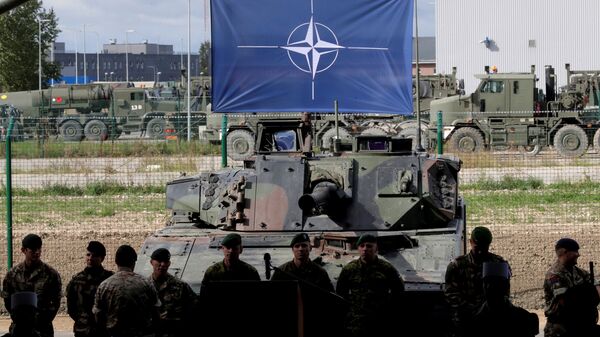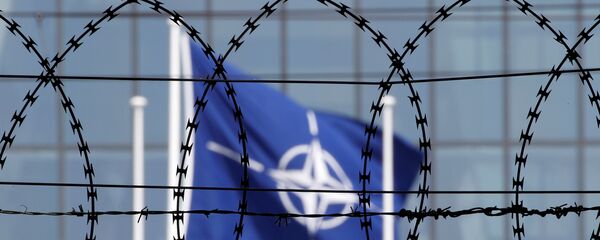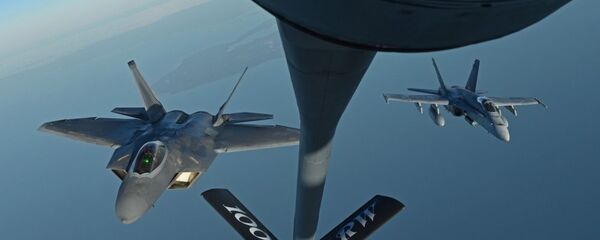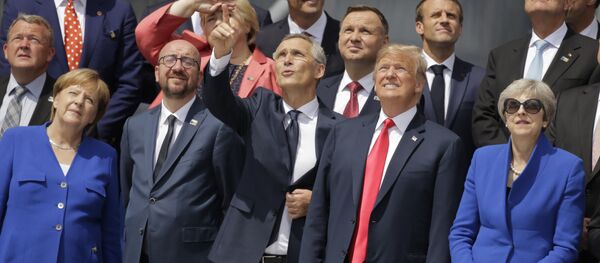The North Atlantic Treaty, initially designed to provide collective defence against the Soviet Union, was signed on 4 April, 1949, by 12 nations. Throughout its 70-year-old history, the alliance has grown into a 29-member bloc. However, the United States hopes North Macedonia can join the alliance later this fall, which would lift the membership to 30.
Moscow has repeatedly condemned NATO's military buildup near Russia's borders, warning that the alliance's aggressive moves could provoke an escalation into a full-fledged confrontation.
Schedule/Events
In a press conference on Monday, NATO Secretary General Jens Stoltenberg, whose term as head of the alliance was recently extended until 2020, said key topics at the ministerial will include relations with Russia, counter-terrorism and burden-sharing.
Stoltenberg plans to deliver a speech to a joint session of US Congress at 11:00 a.m. EST (3:00 PM GMT) on Wednesday before holding bilateral talks with US Secretary of State Mike Pompeo.
In the evening there will be a reception to commemorate the 70th anniversary of the alliance’s founding with remarks delivered by Pompeo in addition to the NATO chief.
READ MORE: NATO Envoy Explains Why US Concerned by S-400 Proximity to F-35 in Turkey
On Thursday, 4 April, the NATO foreign ministers will convene for two plenary sessions in the morning before a working lunch. Stoltenberg plans to hold two press conferences, one in the morning and one at the end of the sessions.
North Macedonia will be attending the ministerial in an observer role after signing its accession protocol to join the military alliance in February, a senior US State Department official said in a press briefing on Tuesday.
US envoy to NATO, Kay Bailey Hutchison, later in the day, told reporters that the United States was hoping North Macedonia would join the alliance later in this year in the fall.
Peace activists will also be organizing events to protest NATO's military interventions around the world.
On Saturday, hundreds of people took to the streets in Washington to protest against the upcoming NATO ministerial.
The Anti-NATO Mobilisation steering committee said in a press release that more events will be held on 4 April.
Russia
On Tuesday, President Donald Trump-hosted Stoltenberg at the White House where he told reporters that he hopes Russia will not pose a security threat to NATO.
A senior State Department official told reporters during a conference call on Tuesday that the first NATO planning session of the ministerial being held in Washington this week will focus on Russia.
"The first plenary sessions will focus on Russia, where I expect ministers will endorse a package of Black Sea measures designed to improve the alliance's deterrence and defence posture in the region", the official said.
The official detailed the topics related to Russia that NATO ministers will also discuss, including the Skripal case, the Kerch Strait incident, Crimea and Georgia.
The NATO chief also said he expects the alliance foreign ministers to discuss Russia in the context of the Intermediate-Range Nuclear Forces (INF) Treaty.
The situation in the Black Sea escalated sharply in November when two Ukrainian naval ships and a tugboat were seized by Russia near the Kerch Strait. Moscow has insisted that the ships entered Russian waters illegally and ignored the calls to stop.
Burden Sharing
NATO members are required to dedicate two percent of gross domestic product (GDP) to defence funding every year. Trump since taking office has persistently pressured NATO members to contribute more and not force the United States to bear the burden.
Trump administration officials have repeatedly made it clear that burden sharing will be a major priority at this week's ministerial.
On Tuesday, Trump told reporters after meeting with Stoltenberg at the White House that NATO member spending has been on a "rocket ship"-like rise.
READ MORE: Trump's Golan Move Could ‘Lead to NATO's Collapse' in the Long Run, PhD Claims
However, he still wants to see allies contribute even more. The US president singled out Germany for allegedly not paying its fair share.
Yet Hutchison told reporters later that German Chancellor Angela Merkel has vowed to meet the country’s targets.
During an expanded bilateral meeting in the cabinet room, Stoltenberg thanked Trump for his support and even backed the US president’s line of attack on NATO allies. The NATO chief said allies must invest more in defence and credited Trump for having a strong message that has had an impact.
Hutchison told reporters on Tuesday that the idea that the United States would allegedly charge NATO allies a premium for hosting troops is not on the table.
As of today, some 20,000 military personnel are engaged in the alliance's missions across the globe, according to official NATO data. The bloc is operating in Afghanistan, Kosovo and the Mediterranean. It supports the African Union, conducts air patrols over the Baltic states and carries out disaster relief missions in crisis-hit Iraq.




